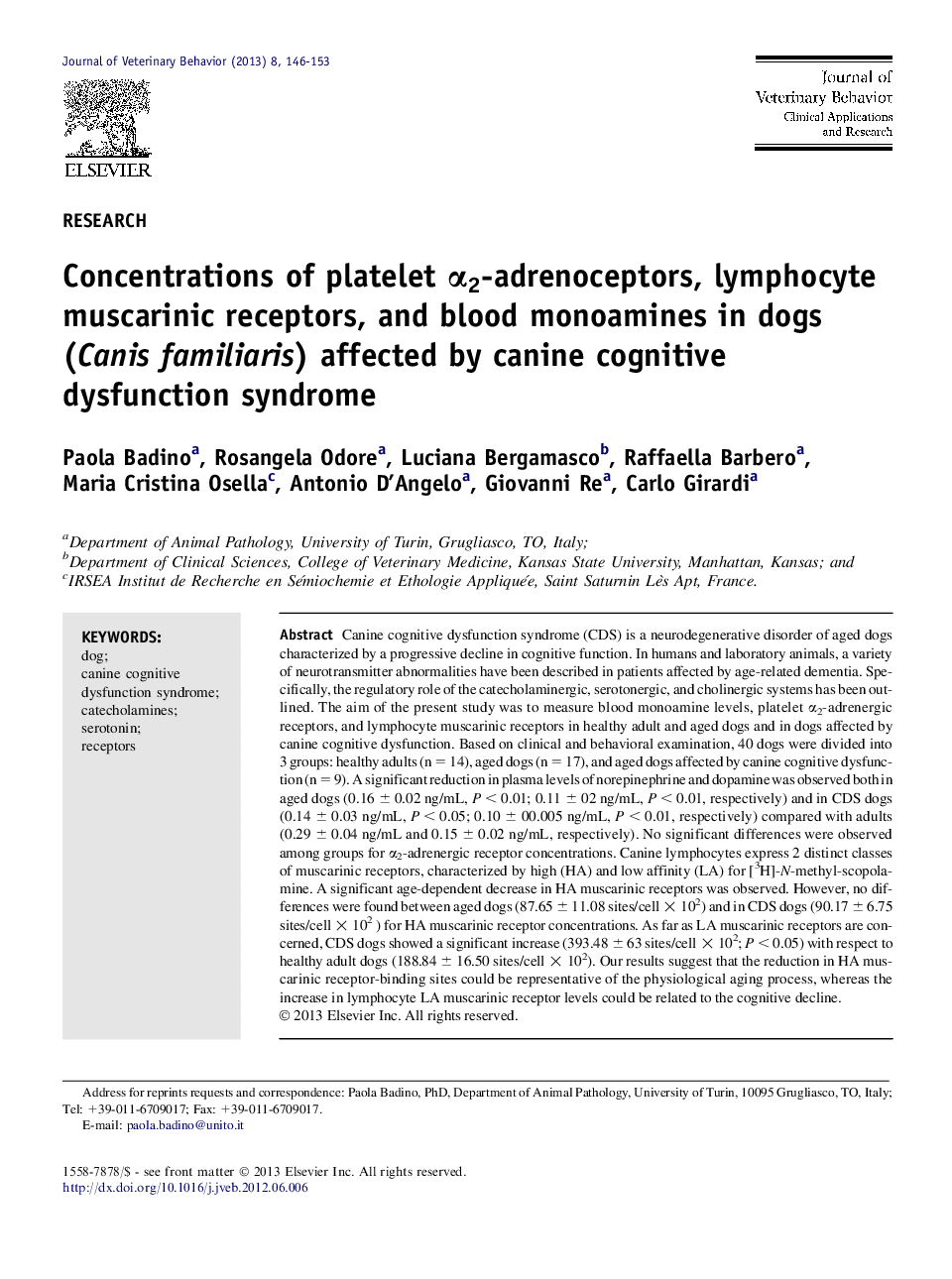| Article ID | Journal | Published Year | Pages | File Type |
|---|---|---|---|---|
| 2398702 | Journal of Veterinary Behavior: Clinical Applications and Research | 2013 | 8 Pages |
Canine cognitive dysfunction syndrome (CDS) is a neurodegenerative disorder of aged dogs characterized by a progressive decline in cognitive function. In humans and laboratory animals, a variety of neurotransmitter abnormalities have been described in patients affected by age-related dementia. Specifically, the regulatory role of the catecholaminergic, serotonergic, and cholinergic systems has been outlined. The aim of the present study was to measure blood monoamine levels, platelet α2-adrenergic receptors, and lymphocyte muscarinic receptors in healthy adult and aged dogs and in dogs affected by canine cognitive dysfunction. Based on clinical and behavioral examination, 40 dogs were divided into 3 groups: healthy adults (n = 14), aged dogs (n = 17), and aged dogs affected by canine cognitive dysfunction (n = 9). A significant reduction in plasma levels of norepinephrine and dopamine was observed both in aged dogs (0.16 ± 0.02 ng/mL, P < 0.01; 0.11 ± 02 ng/mL, P < 0.01, respectively) and in CDS dogs (0.14 ± 0.03 ng/mL, P < 0.05; 0.10 ± 00.005 ng/mL, P < 0.01, respectively) compared with adults (0.29 ± 0.04 ng/mL and 0.15 ± 0.02 ng/mL, respectively). No significant differences were observed among groups for α2-adrenergic receptor concentrations. Canine lymphocytes express 2 distinct classes of muscarinic receptors, characterized by high (HA) and low affinity (LA) for [3H]-N-methyl-scopolamine. A significant age-dependent decrease in HA muscarinic receptors was observed. However, no differences were found between aged dogs (87.65 ± 11.08 sites/cell × 102) and in CDS dogs (90.17 ± 6.75 sites/cell × 102 ) for HA muscarinic receptor concentrations. As far as LA muscarinic receptors are concerned, CDS dogs showed a significant increase (393.48 ± 63 sites/cell × 102; P < 0.05) with respect to healthy adult dogs (188.84 ± 16.50 sites/cell × 102). Our results suggest that the reduction in HA muscarinic receptor-binding sites could be representative of the physiological aging process, whereas the increase in lymphocyte LA muscarinic receptor levels could be related to the cognitive decline.
